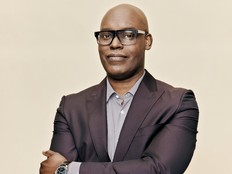Chuck Mangione, dead at 84, was no hack with a horn

Article content
Reviews and recommendations are unbiased and products are independently selected. Postmedia may earn an affiliate commission from purchases made through links on this page.
A healthy segment of Americans knew Chuck Mangione as an object of kitsch. The shoulder-length hair and beard, the colorfully banded fedora, the warm, glossy sound of his flügelhorn (all of which he happily sent up in his self-portrayals on the animated sitcom “King of the Hill”): Mangione represented not just a weird limbo between hipness and squareness, but an outdated one.
Yet if Mangione, who died Tuesday at 84, was game to make fun of himself in that way, it was because he’d already achieved what any artist strives for: He’d made his work an indispensable part of our world.
Specifically, his hit “Feels So Good,” an instrumental pop-jazz crossover that reached No. 4 on the Billboard charts during the summer of 1978, has unexpectedly had as much staying power as “Stayin’ Alive,” “I Will Survive” or any other anthemic tune from that era. So much so, in fact, that we didn’t always notice it.
The melodic, ever-so-gently funky record is played in restaurants and grocery stores, in hotel lobbies and elevators. It has powered more TV and radio commercials than anyone could count. Those of us who aren’t pop-music nerds, or just not old enough to remember when it reigned supreme on Top 40 radio, know “Feels So Good’s” barrage of hooks by heart without even realizing the song has a name.
Those are the qualities that make it easy to mock, of course. It’s catchy but toothless, inoffensively pleasant, so of course it’s ubiquitous. That was part of the “King of the Hill” bit. Mangione was a celebrity pitchman (for Mega Lo Mart, the big-box store of the show’s universe) who, no matter what he played on his horn, always segued into “Feels So Good.”
Through no fault of its own, the record became a cornerstone of smooth jazz, that intersection of jazz, rock, soul and easy listening that conquered the realm of background music in the 1980s and 1990s. The genre is much despised. “Feels So Good,” by association more than any actual element of the song, has thus taken its lumps.
It wasn’t because he couldn’t play anything edgier. The Rochester, New York, native was a graduate, and later a faculty member, of that city’s Eastman School of Music. He also did time in the mid-1960s as the trumpeter in Art Blakey’s Jazz Messengers, the most prestigious finishing school in postwar jazz.
Before earning those two distinctions, he and his brother Gap, a pianist, had some early-1960s success leading the hard-swinging Mangione Brothers sextet, recording an album before he was 20 years old (with two more to follow). Dizzy Gillespie was both a fan of and mentor to the trumpeter. They remained close until Gillespie’s death in 1993.
Chuck Mangione was no hack with a horn.
But he came to jazz when it had split into two poles: a populist one, which was trending ever lighter to suit mainstream tastes, and an arty one, which was increasingly inaccessible.
Mangione wanted to reach the people. He saw nothing wrong with that. But he wasn’t interested in success for its own sake: “I didn’t want to record something I didn’t like, because if it became a hit I wouldn’t be happy playing it,” he told JazzTimes magazine.
It’s a sentiment that was also expressed by the likes of Paul McCartney – who, as a solo artist, had been on the receiving end of the same kind of kitsch accusations as Mangione. But it’s also resulted in the horn player getting the same kind of world-class work: In 1980, for example, Mangione was invited to compose a theme song for that year’s Winter Olympics. He played the resulting tune, “Give It All You Got,” live at the Closing Ceremonies in Lake Placid, New York, for a worldwide television audience. (It was another Billboard Top 20 hit, too.)
Talk about reaching the people.
The comparison with McCartney is apt in another sense. Say what you will about “Feels So Good” and its particular kind of ubiquity; it means that Mangione achieved, without exaggeration, Beatle-level cultural saturation. More people know his music than know him. He reached this point without, in his own words, having to resort to music he didn’t want to play.
In the wake of Mangione’s passing, there will be plenty of people who are ready to pile on and crack jokes about the kitschy side of his legacy. The joke will be on them. Mangione was perfectly content with that aspect of himself.
Meanwhile, he infiltrated our environment and our lives in a way that many of his critics can only dream of.
Love concerts, but can't make it to the venue? Stream live shows and events from your couch with VEEPS, a music-first streaming service now operating in Canada. Click here for an introductory offer of 30% off. Explore upcoming concerts and the extensive archive of past performances.











Postmedia is committed to maintaining a lively but civil forum for discussion. Please keep comments relevant and respectful. Comments may take up to an hour to appear on the site. You will receive an email if there is a reply to your comment, an update to a thread you follow or if a user you follow comments. Visit our Community Guidelines for more information.